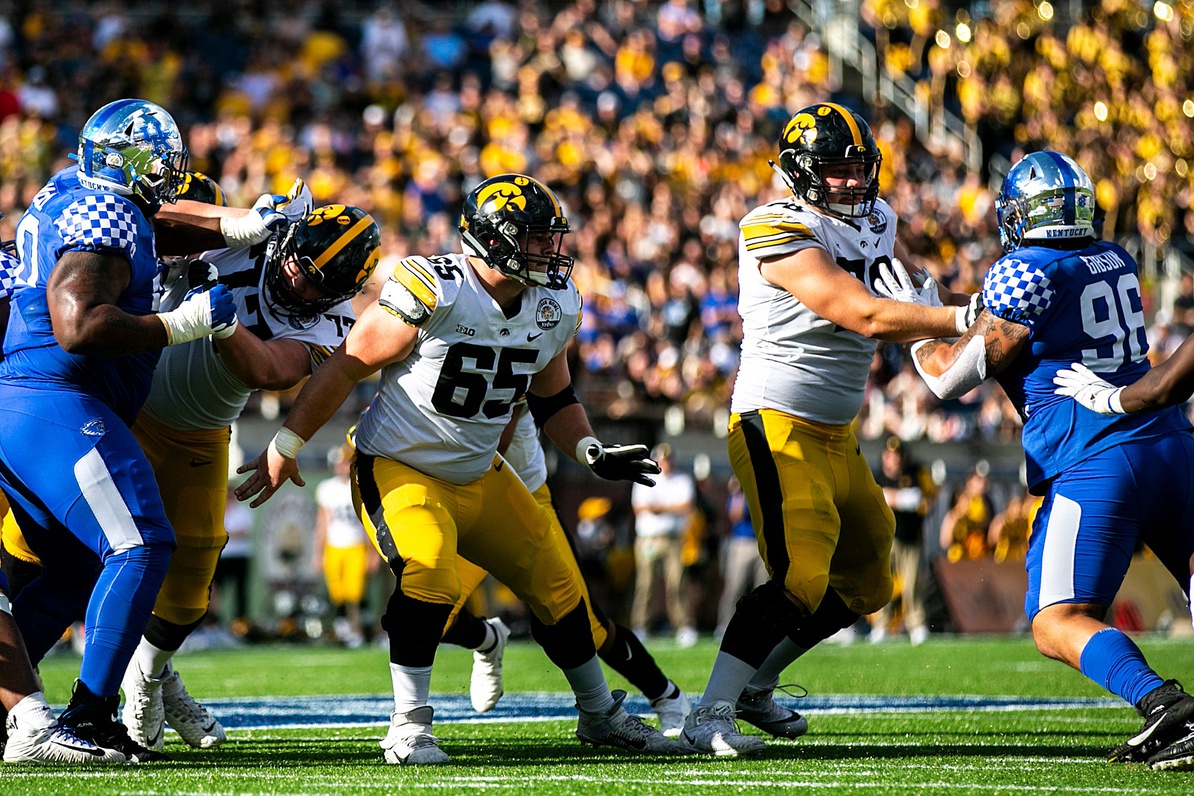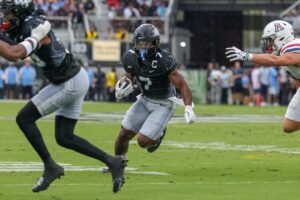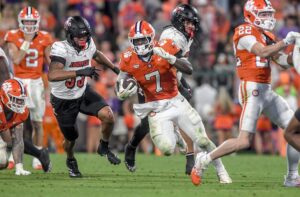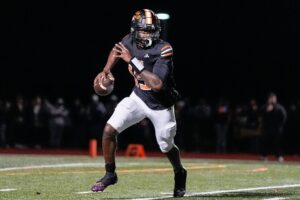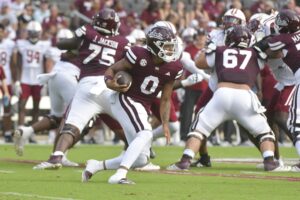A legitimate argument can be made that Iowa could have been a Playoff-contending team in each of the last two seasons. However, one piece was missing – a big piece – and that was an offense. Everyone has seen the numbers for the poor statistics of Iowa’s offense last season. People may have forgotten that the Hawkeyes were the number two team in the nation on October 10th, 2021. Their defense that year recorded 25 interceptions and allowed just 19 points per game. Iowa finished 10-4 with a Citrus Bowl loss to Kentucky. Last season, the defense took another step forward. The Hawkeyes allowed an average of 13 points and 169 yards per contest. It ended with a Music City Bowl victory over Kentucky and an 8-5 record. The common denominator – is an impotent offense.
A change was clearly needed on the offensive side of the ball. However, it didn’t come in the form of any staff changes as many hoped. Brian Ferentz remains the coordinator and play caller in addition to his position as quarterbacks coach. Instead, Iowa took to the transfer portal to begin putting the pieces together for a new-look offense.
Quarterback Upgrade
The premier piece of that puzzle was the addition of quarterback Cade McNamara. The Michigan grad transfer brings 16 career starts and 21 games of experience to the Iowa quarterback room. He has a 13-3 record as a starter and two remaining years of eligibility in Iowa City.
From a pure talent perspective, McNamara is a distinct upgrade at the position. At Michigan, he routinely delivered accurate passes downfield with an adjusted completion percentage of 75% in 2021. McNamara also has shown his ability to make good decisions with the football. As a Wolverine in 2021, he threw just six interceptions on the season with two coming against Georgia in the Playoff. Eight of his 330 passing attempts were considered “turnover-worthy” according to Pro Football Focus. That’s just over 2% and is tied for third-best in the Power Five. Iowa is in need of good decision-making at the quarterback position, and McNamara has that ability.
Behind him, Iowa has a completely overhauled position group. Spencer Petras will not play his final season of eligibility due to injury and will serve as a player coach. Carson May and Alex Padilla have transferred out, leaving redshirt sophomore Joe Labas as the only returning active player. Iowa added a former four-star and transfer from Wisconsin Deacon Hill. Additionally, class of 2023 three-star signee Marco Lainez III will join the team this summer.
Offensive Line Improvements
The other, arguably more important, area of improvement this offseason will be the offensive line. Last year’s group gave up 38 sacks. 26.4% of all quarterback pressures turned to sacks, the sixth-worst in the Power Five in 2022. The youth and injuries at the position were detrimental to the success of Iowa’s offense last season.
To fix this, Iowa targeted the transfer portal. They landed a couple of three-star transfers at the position including Rusty Feth from Miami (OH) and Daijon Parker from Saginaw Valley State. Feth is a 6’-5” 305-pound graduate transfer center that has 34 career starts in a Redhawk uniform. He has not allowed a sack since the 2021 season, and will likely line up at guard for Iowa. Parker is an offensive tackle at 6’-6” and 300 pounds. He has 21 games of experience at the Division II level. After originally committing to Virginia, the Hawkeyes flipped him and he’ll have one year of eligibility remaining.
Returning Experience
Last season’s five starting linemen varied from week to week. Logan Jones, Mason Richman, and Connor Colby started all 13 games. The other two positions mostly varied between Beau Stephens, Nick DeJong, and Jack Plumb. Prior to 2022, those six linemen had 43 total starts. Richman and Colby accounted for 25 of them. Of the other four linemen last season, two had never started a game prior to 2022, and the other two had had 18 starts between them. The youth was critical last season.
Assuming both Feth and Parker start next season, the other three linemen are likely to be Jones, Richman, and Colby. Between the new five, they’ll have 119 total starts under their belt. That’s a 276% increase from last season, almost triple the experience. It’s inevitable that in some form, this offensive line will be better in 2023. Based on experience, added pieces, and better depth at the position, the offensive line room will take a step forward.
Pass-Catchers
In Iowa’s first two games of the 2021 season, only one scholarship pass-catcher was on the two-deep roster – Arland Bruce IV. He has since transferred along with Keagan Johnson. Tight end Sam LaPorta will be drafted in April, leaving Luke Lachey and Nico Ragaini as the team’s two most experienced returning starters.
Brody Brecht and Diante Vines stepped into the scene last year as wide receivers. Brecht has the size and length to be a reliable downfield guy, while Vines’s speed can help him be successful in the slot. However, Iowa again needed to fill in pieces at the position with their three departures.
Tight end Erick All, a former roommate of McNamara at Michigan, transferred to the program in January. He and McNamara already laid a solid foundation during their time in Ann Arbor and will add yet another threat to the Iowa tight ends room. The Hawkeyes also landed wide receiver Seth Anderson from Charleston Southern, an FCS program. He was one of the top receivers in the FCS last season with a keen ability to tally yards after the catch with a wide catch radius. At 6’-0” and 180 pounds, he is slightly smaller than Johnson, with many of the same skills.
Will Iowa’s Offense Actually Improve?
For McNamara, a wide range of targets will be critical for success in the passing game. At Michigan, he won the Big Ten Title and appeared in the Playoff with a strong defense, a top offensive line, and a reliable, diverse passing game. McNamara’s range of targets included 11 different receivers with 10 or more receptions. All was one of those 11 players, and his 38 receptions for nearly 500 yards helped Michigan to a championship two seasons ago.
It’s not to say that Iowa will be what the Wolverines were in 2021, but they have the right pieces offensively to head in that direction. The quarterback has won a title and carries with him a certain swagger and aura of confidence and leadership that is contagious. His offensive line has significantly more experience than last year’s group with a healthy dose of upperclassmen and graduate-level experience. At pass-catcher, McNamara will have two proven tight ends and four quality wide receivers. Including Iowa’s two to three running backs, which makes nine starting-caliber players available at McNamara’s disposal. There’s nowhere to go but up for the Iowa offense, but it has the ingredients to take a greater step forward than you may think.



